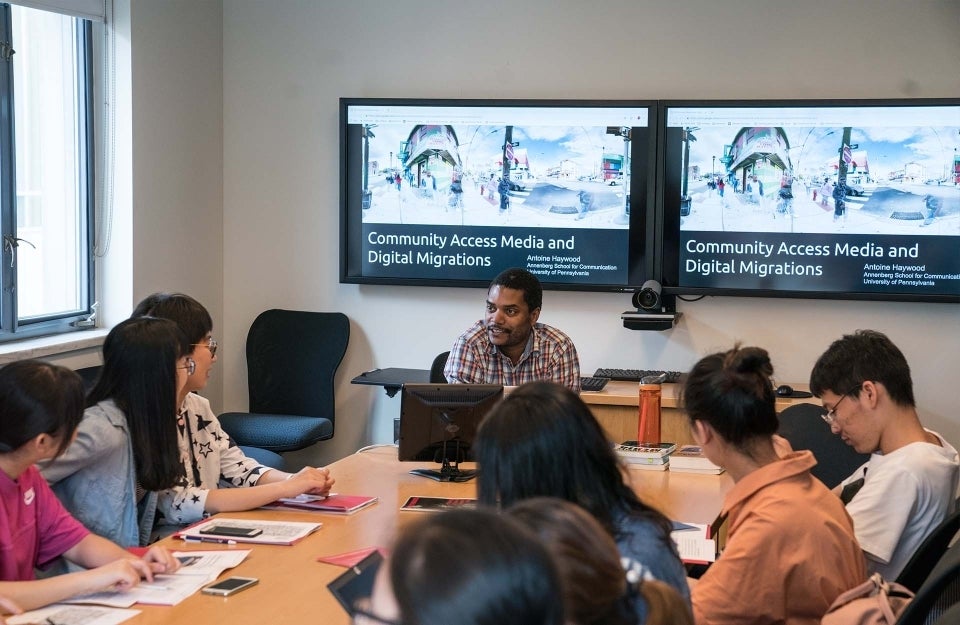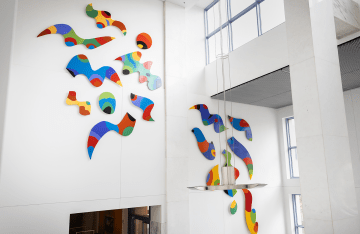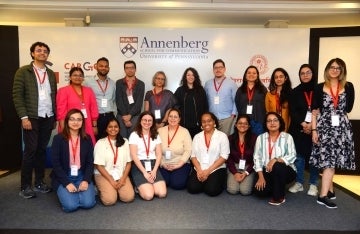Antoine Haywood Receives 2020-21 Graduate Student Fellowship for Teaching Excellence
The fellowship is designed to help graduate students develop as teachers.

The Center for Teaching and Learning (CTL) at Penn has awarded doctoral student Antoine Haywood a 2020-21 Graduate Fellowship for Teaching Excellence.
CTL Graduate Fellows are nominated for their teaching excellence by their schools or departments and then chosen in a highly selective process by CTL from a strong pool of university-wide nominees. Between 10 and 14 fellows are typically chosen each year.
CTL’s Graduate Fellowship for Teaching Excellence program honors graduate students who are dedicated to excellent teaching and is designed to foster conversations about teaching in order to help graduate students develop as teachers. Graduate Fellows organize and facilitate teaching workshops in their departments and across the university, observe graduate students teaching and offer feedback, and meet regularly as a fellows group to discuss teaching practices.
At Annenberg, Haywood served as a teaching fellow this past semester for COMM 411: Communication, Activism, and Social Change taught by Professor Sarah J. Jackson, Ph.D. In addition, he has been an adjunct instructor at Thomas Jefferson University East Falls Campus for three academic years, teaching COMM 101: Intro to Communication, COMM 204: Technologies of Communication, and COMM 300: Text, Sound, Image under the guidance of Letrell Crittenden, Ph.D., program director and assistant professor of Communication.
“I am grateful for this fellowship, which enables me to work alongside other graduate students and faculty who want to enrich their classroom pedagogy," says Haywood. "I am also determined to build and share knowledge about teaching practices that benefit marginalized people and advance community well-being.”
Haywood's research focuses on understanding transformative and resonant effects that occur when people voluntarily participate in communal learning and media-making practices. His ethnographic and practitioner inquiry approach is informed by his fifteen years of professional practice in the public, educational, and governmental (PEG) access media field. He also studies prevailing forms of collaborative and solutions-oriented journalism, political-economic conditions of local media ecosystems, and precarious relationships that marginalized people have with digital communication technology.



